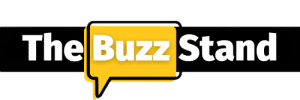Chapter 9:


Inbound marketing certification course chapter-9
With this article, we are going to start a new part of our inbound marketing certification course. We would be talking about optimizing your websites for search engines. When you search for something it is most likely you visit a search engine and enter the information. This search engine then redirects you to a page which has lots of websites matching your information. These websites which appear are because of an inbound marketing strategy known as SEO or Search Engine Optimization. This article would help you define SEO and how search engine work.
SEO is a technique of optimizing the ranking of web page or a domain. So how does it work. Though we would be discussing it later in detail but for a brief, your website or web page has certain content. This content has certain keywords that help search engines know what content is about and then they compare this content with your entered information. If it is found relevant then it would rank higher. Now, there are various parameters like keywords, quality of content, back links that we would be discussing later but this was just a glimpse to define SEO. We now look in detail how search engines work.
How Search Engines Work
How do search engines view your websites? Are they able to comprehend like us? The answer is No. Search engines are not human and the content provided on website doesn’t appeal to them as it to us. It is just a code with parameters defined based on which it makes judgment. Though we are moving towards AI but implementing it is pretty far off. At present, search engines cannot read images. They get its idea from text or title along the image. Search engines at present are text driven and they try to judge relevancy of content through their own set parameters. So how does this process of ranking on Search Engine takes place? The 4 stages for this are crawl, index, process and retrieve.
The process begins with spider crawling your website. Spider is a software or code designed to read through website. Spiders follow links available on your web page and keep on finding whatever data is available on your website. Crawling a site can take time and it can be even weeks before actual crawling begins. Spiders can only read text and they cannot crawl image, video, audio or another interactive media at present.
After a web page has been crawled, it needs to be arranged or indexed so that it can be easily retrieved later. The process of indexing helps to identify the kind of content that might be associated with that page. This is done with the help of identifiers known as keywords. The better your page is optimizing the better search engine would be able to understand it better. This helps define SEO
After index, third stage is the processing. When, now someone searches for information on the internet search engine compares this with its understanding of web page i.e. keywords. There are millions of websites and therefore, there would be many which would be similar meaning and because of this relevancy of content comes into picture. Now, every search engine has its own parameters to decide this relevancy. This might be on number of backlinks, quality of content, popularity and various other factors in the algorithm.
Last step is displaying the results or retrieving the information which it has processed in fraction of seconds to the person who did a search. This is how we define SEO and it comes into picture.
Al the search engines have their different algorithms for ranking a page. A Google gives more importance to links and quality of content. Whereas, search engines like Yahoo and Bing give importance to one keyword factor. The older your site gets Google considers it more relevant. Whereas, the same is not the case with the Yahoo and Bing. Google tries to get a complete picture through quality and quantity of content. You would find differences in the time taken to index a page.
Keep reading and learning more through our inbound marketing certification course. In case of help or information for SEO and inbound marketing strategy you can contact The Buzz Stand Team.





